14 Campers Speak Plainly: I Wish I Had Known This Earlier When Camping
Don't make the same mistakes as we did. Here are 14 camping skills and lessons that could revolutionize your outdoor experience. Discover them now.
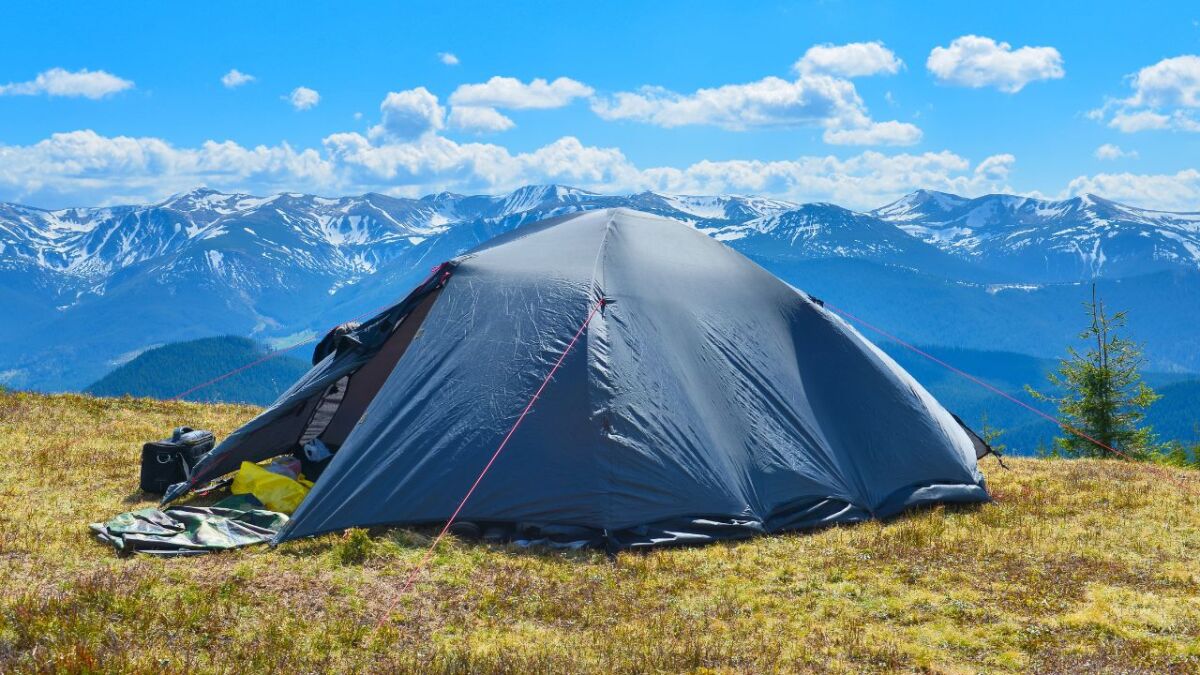

From Martin Gebhardt. Check out my “About me” page.
👉 The key facts from this guide
- 14 campers tell what they would have liked to learn earlier. The following tips are included:
- You shouldn't underestimate the art of efficient packing and the importance of the right camping equipment.
- Choosing a good campsite and understanding the layering principle for clothing are crucial.
- Basic survival skills, such as recognizing edible wild plants and properly storing food, are essential.
- Don't rely too much on technology; strengthen your navigation skills and learn how to start a fire even in wet conditions.
- A comprehensive first aid kit and the proper training can make the difference between a minor problem and a fatal incident.
- Respect the local wildlife and ecosystem, and understand the behavior of wild animals and the proper storage of food.
You know the feeling, right?
You're outside, in the middle of the wilderness, and suddenly, you come across a problem that throws your entire camping trip off balance. It's frustrating.
Maybe it was an unexpected rain shower that soaked your tent. Or a fire that just won't burn, even as night falls.
Exactly there they were too. But they have learned.
I have interviewed 14 campers, and they reveal their biggest aha moments and the skills they wished they had known earlier.
Let's avoid these mistakes together and make your next outdoor adventure your best one yet.
1. Efficiency in the Wilderness: Lessons from Brian Campbell
"First, I underestimated the significance of efficient packing. Learning to optimize gear organization and reduce unnecessary items lightened the load and improved my camping experience. Having the right camping gear, like a reliable backpacking water filter, turned out to be crucial for safe and enjoyable trips.
Additionally, mastering basic survival skills like fire making and shelters-building earlier on would have boosted my confidence in the wild.
Furthermore, I regret not emphasizing “Leave No Trace” principles earlier. Respecting the environment ensures the natural beauty of camping sites for future generations.
Lastly, networking with fellow campers for tips and tricks would have been invaluable. Sharing experiences fosters camaraderie and opens doors to discovering hidden gems."
Brian Campbell, Founder of WaterFilterGuru.com.

2. The Art of the Onion Principle: Sabrina Kong's Camping Insights
"First off, the importance of a good campsite setup. I used to throw my tent up anywhere, but learning how to choose a spot with proper drainage and wind protection made all the difference. Oh, and those lightweight, packable dog beds? Game-changer for my furry friends.
I also wish someone had told me about the art of layering clothes. It sounds simple, but having the proper layers for different weather conditions can make or break a trip. And let's not forget about proper food storage. Keeping food secure not only keeps critters away but ensures a happy and healthy camping experience for everyone, pups included."
Dr. Sabrina Kong from WeLoveDoodles.com
I regret that I did not complete a proper first aid course tailored to outdoor activities. - Andrew
3. Survival Skills & Food in the Wilderness: Insights from Andrew
"I would have prioritized learning proper food storage techniques to minimize animal attraction and learning how to identify edible wild plants.
Understanding weather patterns and packing appropriate clothing for sudden temperature changes would have saved discomfort. Additionally, mastering essential knots and honing navigation skills without relying solely on electronic devices would have made my trips more efficient and safer.
I regret not taking a proper first aid course tailored to outdoor activities, as dealing with medical emergencies in the wilderness requires specific knowledge. These lessons would have enhanced not only my safety but my overall enjoyment of camping experiences."
Andrew from rvcampgear.com
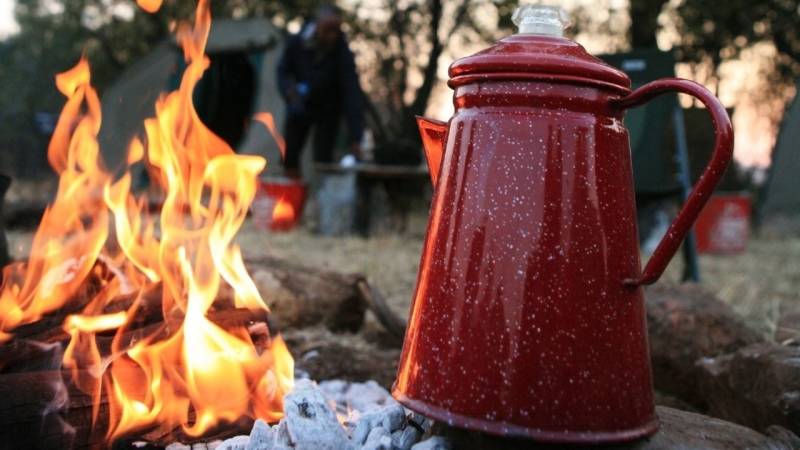
4. Technology vs. Tradition: Camping Lessons from Ryan & Kirsty
"Looking back, I wish I had honed my navigation skills earlier, specifically using a compass and topographic maps. Relying too much on technology can be a downfall, especially in remote areas with limited signal.
Moreover, understanding the importance of layered clothing for varying conditions is a lesson I would have loved to learn sooner. It's not just about having warm clothes; it's about wearing them correctly.
The practice of fire-making in wet conditions is another skill that's indispensable in camping. Many times, the weather can be unpredictable, and knowing how to get a fire started regardless is a game-changer.
I deeply regret not being informed about the importance of foot care. Blisters or foot injuries can halt an expedition, and understanding preventative measures and treatments would have made several trips more enjoyable.
Additionally, the practice of journaling during camping trips was something I discovered late. Capturing thoughts, experiences, and learnings in real-time adds a reflective dimension to the adventure.
I genuinely regret not discovering the value of a comprehensive first aid kit and training. While I always carried basic supplies, understanding how to treat common outdoor injuries and ailments can make the difference between a minor hiccup and a trip-ending issue."
Ryan & Kirsty from threeasabird.com

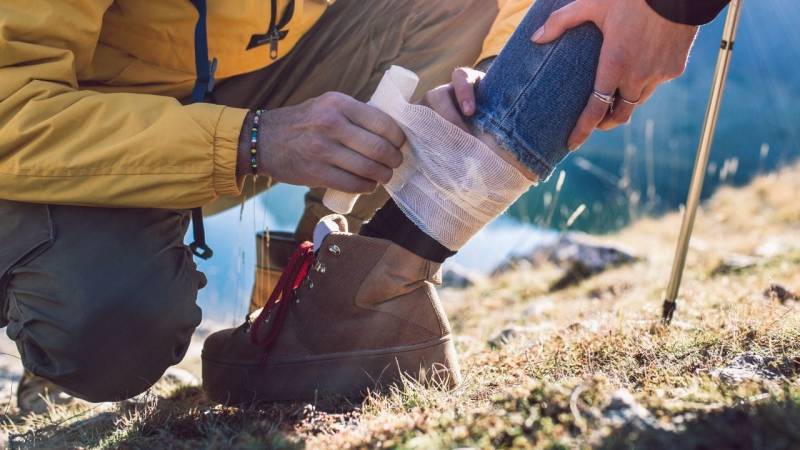
5. Priority First Aid: The Evolution of Camper Ryan Wilson
"As I’ve gotten older, I now value safety more while camping than I did when I was younger. In the past, I would only bring some band-aids and over the counter pain relievers in my first aid kit.
But after having seen a number of injuries while camping, and how long it can take to get medical help in remote areas, I now carry a robust first aid kit while camping.
I carry a range of first aid items that cover the types of injuries commonly seen while camping (e.g., fractures, burns, cuts). After all the use it has received, I’m not sure how I ever managed without a robust first aid kit!"
Ryan Wilson, Founder of thecamperadvisor.com

I wish I had known from the beginning how to make a good fire. - James Smith
6. Nature, Navigation, and Curious Bears: The Camping Trip of James Smith
"I wish I had known how to build a good fire from the get-go. Learning the ins and outs of starting a fire, from fuel to a good fire lay, would have saved me hours of wasted time and sleepless nights under the bonfire.
I also wish I had learned how to read maps, use a compass, or do basic celestial navigation. More than a few missteps would have saved me a lot of time.
It’s also important to know how to set up your campsite properly. Knowing where to put your tent, how to anchor your tent properly, and the fundamentals of leaving no trace will ensure you leave nature in pristine condition for others to enjoy. And believe me, and it takes time to master campfire cooking. Learning the proper techniques and equipment for gourmet wild food would have greatly improved my camping cuisine!
One of my biggest regrets is that I underestimated the importance of good equipment. Purchasing long-lasting gear sooner would have saved me from sagging sleeping bags and leaking tents during unexpected downpours.
Another thing I should have realized was how important it was to layer clothing for different weather conditions. I learned this the hard way during sleepless nights.
Another thing I wish someone had told me was how important it is to respect the local wildlife and ecosystem. I had a run-in with a curious bear, which made me realize how important understanding wildlife behavior and proper food storage is.
In conclusion, campers, I’ve learned many skills and lessons that I wish I’d picked up earlier in my adventures outdoors. Now that I’m a content creator and B2B sales manager in the travel industry, my experience has taught me the importance of preparation, flexibility, and ethical outdoor behavior. Don’t forget that every camping trip is an opportunity to learn something new. Armed with these valuable lessons, you’ll be well on the way to becoming an expert wilderness explorer."
James Smith, Founder of travel-lingual.com

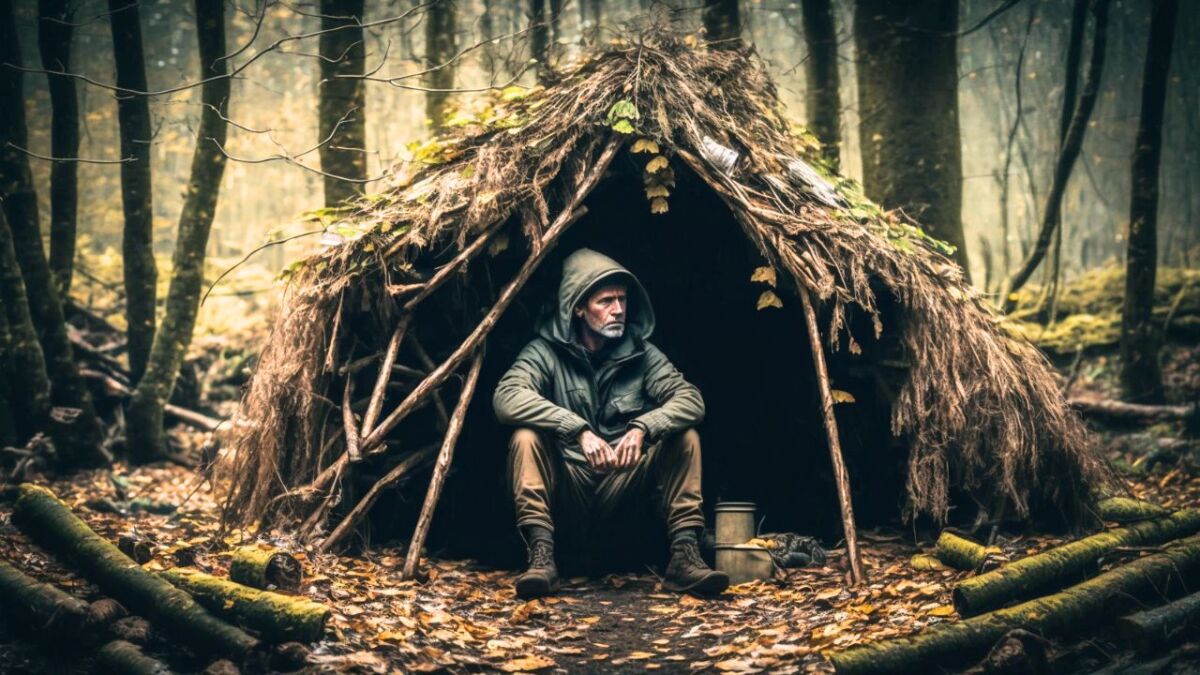
7. Between Shelter and Nutrients: Adam Feck's Camping Philosophy
"What I would have prioritized more in the past are two things that I thought I knew well but have recently learned far more about. Both, in retrospect, having been prioritized in the past could have contributed to a better, more enjoyable, and safer experience. I am an avid backpacker, retired firefighter, SAR volunteer, and National Ski Patrol, Nordic.
I recently learned the following at a MTR-1 (Mountain Travel and Rescue) class last winter. The first is efficient deployment of a shelter, specifically a tarp. Being prepared with the knowledge and muscle memory of a few different options of deployment to efficiently accommodate the terrain and natural material available to work with.
The second is to take the time to plan the macro-nutritional intake for the excursion, plus reserves. I always consumed enough food, calorically. Using a guide provided in the MTR-1 class, I can now plan my food for my best physical performance, safety, and enjoyment!"
Adam Feck, President of forward46.com
I wish I had given priority to learning knots earlier. - Jason Hitchcock
8. Node Art: The Invaluable Knowledge of Jason Hitchcock
"I wish that I would have prioritized learning knots earlier. I was introduced to them as a boy in the Boy Scouts, but just never thought they were that important. I knew how to tie a few knots like a slip knot, square knot, and an overhand knot, and didn't think that there was anything more to learn than that. Now I realize how amazing knots are.
Knots like the Prusik Knot and the Truckers Hitch are amazing and so useful around camp. I laugh now when I think about trying to pitch a tarp without using a Prusik knot on a ridgeline! The trucker’s hitch is great for everything from tensioning guy lines to securing a load in my truck. These are just two examples, but there are many more knots that you don’t realize how they make tasks easier around camp and are so simple to learn."
Jason Hitchcock, Founder, Survivalstoic.com
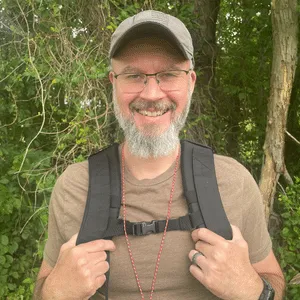
9. Navigating through Nature: Marcos' 30-Year Camping Journey
"Looking back on my more than 30 years of global camping adventures, I've come to realize the importance of certain skills and lessons that would have significantly enhanced my experiences had I prioritized them earlier. One key aspect is navigation proficiency, as mastering the use of maps, compasses, and GPS devices can prevent getting lost and ensure a safer journey.
Moreover, I wish I had emphasized the art of campfire cooking and food preservation techniques. These skills not only enhance the camping experience but also provide sustenance and create memorable moments. Learning first aid and wilderness survival skills is another aspect that would have been invaluable earlier on.
It's regrettable that I didn't fully appreciate the significance of packing light and efficiently organizing gear. These practices streamline the camping process and allow more time to immerse oneself in nature's wonders."
Marcos Clowes, Camping Enthusiast, linkedin.com/in/marcosclowes/
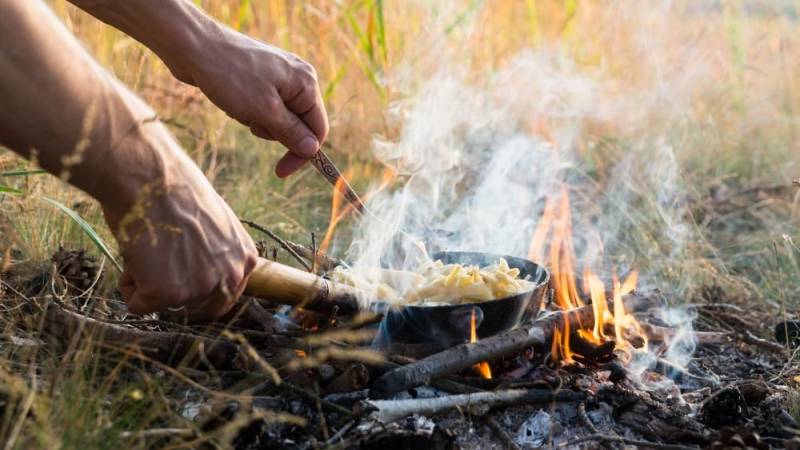
10. Camping, Cooking, Packing: Luke's 7-Year Camping Story
"As an active camper who has camped over 100 times in the past 7 years, there are a few key skills and lessons I wish I had learned earlier on in my camping experiences. One major thing is learning how to properly set up a tent.
When I first started camping, I would just haphazardly set up my tent, not worrying about finding an ideal flat spot or properly staking it down. This led to some frustrating nights trying to sleep in a sloping tent that would collapse in the wind! I'm upset I didn't learn proper tent set-up right from the start, as it would have prevented many restless nights.
Another skill I wish I had learned sooner is how to build a good campfire. My early campfires were always smoky, sputtering messes that could barely boil water. It wasn't until an experienced camping buddy showed me how to stack the wood and get the airflow right that I finally learned how to build a campfire properly.
I'm annoyed that no one gave me campfire tips earlier on, as I needlessly struggled with subpar fires for many trips.
Finally, I wish someone had told me sooner about the importance of packing light. When I started camping, I'd bring a huge suitcase stuffed with every item I could conceivably need. This led to exhausting hauls from the parking lot to the campsite.
I'm frustrated no camping veterans warned me about the benefits of minimalist packing sooner. My back wishes I had learned ultralight packing methods years ago!"
Luke, travel expert and founder of usarover.com

I would have liked to learn earlier how to prepare good, but simple food. - Laura Witt
11. The Perfect Food in the Wilderness: Laura's Culinary Camping Experience
"I wish I had prioritized learning how to make good but easy food while camping. It’s fine to spend a weekend surviving on hot dogs, chips, and peanut butter and jelly sandwiches when you only camp occasionally.
Eventually, I started camping often enough that I began to dread eating my typical camping diet, so these simple foods weren’t cutting it anymore. At the same time, I also didn’t want to cook more elaborate meals that would require me to wash a lot of dishes at the campground.
Finding go-to camping meals is based a lot on personal preferences, but my biggest tip is to meal prep at home. Chopping and mixing any ingredients you can ahead of time saves a lot of time and dirty dishes at the campsite while still being able to cook a delicious meal."
Laura Witt, Blogger, Amateur Adventure Journal
I really, REALLY wish I had learned how to identify poison ivy much earlier. - Joe Bassett
12. The Poison Ivy Disaster: Joe Bassett's Fiery Experience
" really, REALLY wish that I had learned how to identify dormant poison ivy much earlier. On more than one occasion I gathered it as fuel for a mid-winter campfire. The smoke dispersed particles that carried urushiol of that infernal plant. Most of my body was covered with winter clothing, but my face, neck, and ears were swollen and blistered for more than a week."
Joe Bassett, Founder of Valiant Outfitters (www.valiantoutfitters.com)
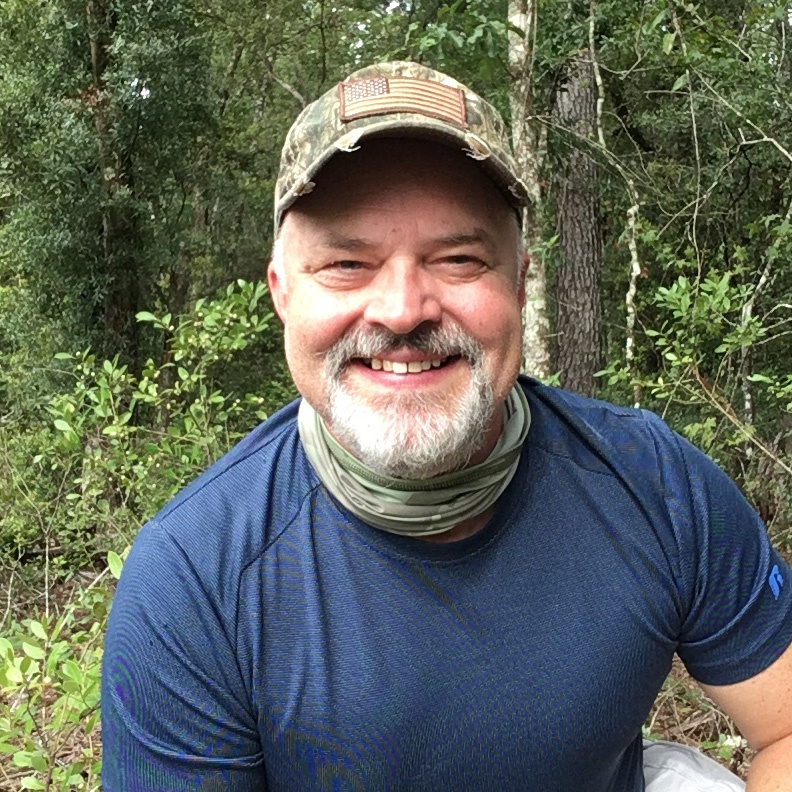
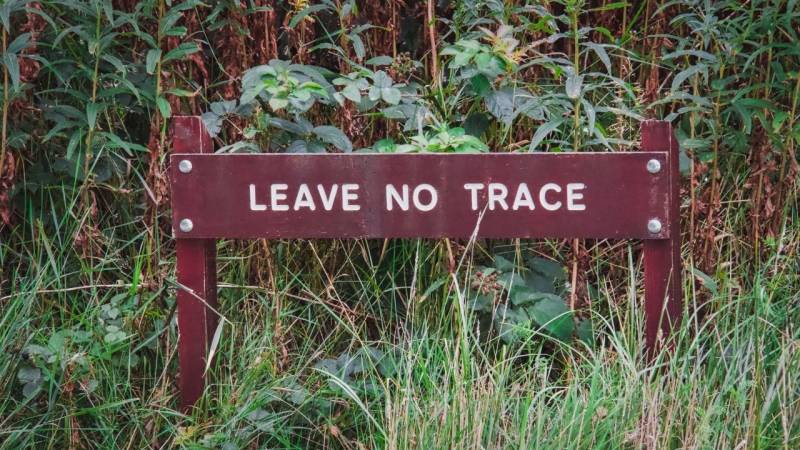
13. Leave no Trace: Mike's Sustainable Camping Priorities
"One skill I regret not mastering earlier is the art of selecting the perfect campsite. Ensuring a site is away from potential hazards, such as falling branches or flash flood zones, can be critical for safety.
Another is the ability to efficiently start a fire under various conditions. Had I known the fine points of selecting the right materials and fire-making techniques, I would have saved myself many cold nights
Finally, I wish I were introduced to the concept of Leave No Trace earlier. Ensuring that the wilderness remains pristine for future generations is our responsibility as campers. Looking back, these skills not only would've enhanced my camping experience but also bolstered my safety in the wild. If I could turn back time, these would be at the top of my priority list."
Mike Millerson, Founder of Survive Nature
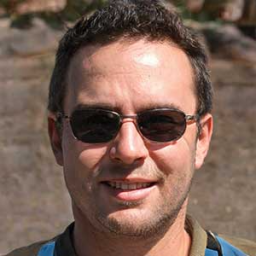
Invest in a quality knife and always keep it well maintained. - Joe
14. From Hunting to Cooking: Joe's Survival Strategies in the Wilderness
"Before suffering a massive stroke 3 years ago, I lived in the backwoods for 2–3 months every year.
The number one skill I wish I had learned when I was a novice camper would have to be proper skinning of small game.
Eating field-sourced meat is vital if you wish to pack light. Not having to rely on MREs or other unhealthy foods is another plus.
Preparing a meal with what I caught was usually a tricky, time-consuming, jumbled process.
To all aspiring hard-core campers, learn how to PROPERLY skin game (especially small game), as it will make your life much easier.
Bonus tip: Invest in a quality knife and always keep it well conditioned. You don't need to spend a fortune on one either. Just make sure it has a clip or drop point blade and is well-made. A $80-$100 knife should be considered a long-term investment for the serious camper and/or hunter."
Joe from carcampingdude.com
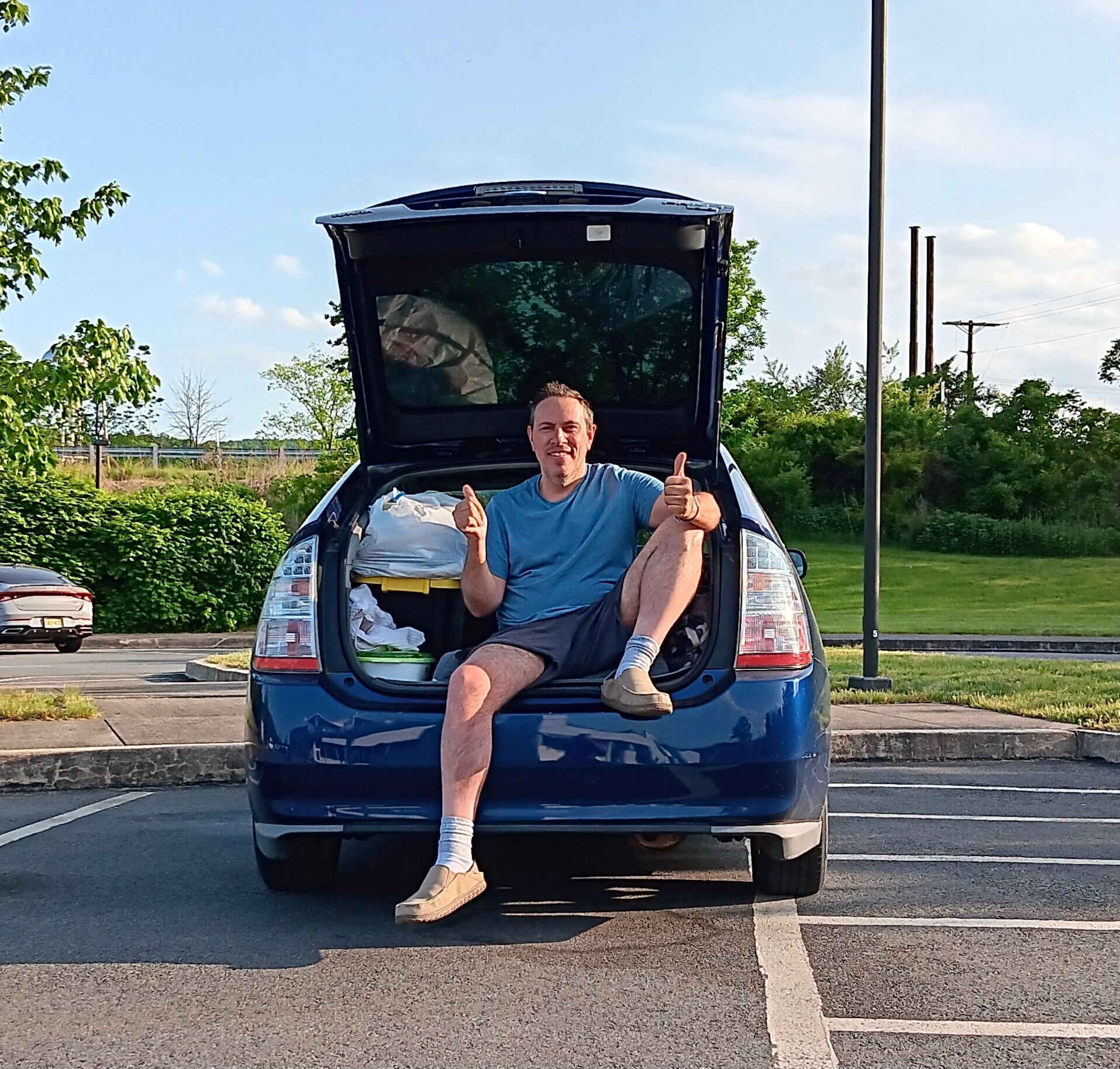
Final Thoughts
Finally, I would like to say:
The nature holds so many wonders for us - and camping is one of the best ways to experience them up close.
But as with any adventure, preparation is the key to success.
The more you know and learn, the more you can enjoy every moment in the wilderness.
So, pack your backpack, grab your equipment, and dive deeper into the world of camping.
If you're looking for more inspiration, tips, and tricks to enhance your next outdoor experience, check out my Camping category. Your next adventure is already waiting for you!


Author of the guide
Martin Gebhardt
Hey, I'm Martin. On my blog, you will learn the basics and numerous details about living in the wild. I think survival, bushcraft and the good life in nature are the keys to happiness. Find me here on Instagram or on YouTube. You can find more about my mission on the About Me page.
Was this guide helpful?
14 people found this guide helpful.
5.00 out of 5 points (14 Ratings)
Comments (0)
This post may contain affiliate links. So if you click on the links and make a purchase, I will receive a small commission at no additional cost to you. Click here, to learn more about it.



